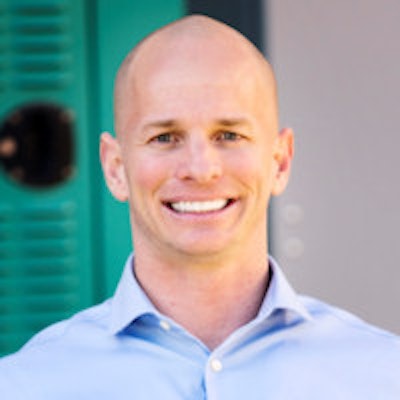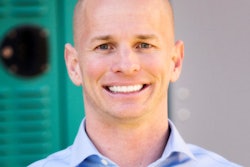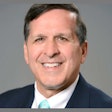
Numbers don't lie. When I talk to dentists about their practice, I often hear an excuse on why the practice isn't reaching the expectations of the owner-doctor. But when we get into the numbers, we see exactly what is happening within the office.
 Curtis Marshall is the vice president of marketing at Dental Intel.
Curtis Marshall is the vice president of marketing at Dental Intel.When doctors are able to focusing on where they are, versus where they want to be (or where they think they are), the practice and team members succeed more quickly than those who don't.
I am the Naked Dentist. No, I am not a dentist, I am not always naked, nor do my clients practice dentistry naked. I have a powerful analytic tool that strips a dental office of all its clothes, makeup, and accessories to reveal the true problem areas. At that point, we can maintain dental performance or systematically improve performance to reach forecasted goals. Today, we are going to discuss how focusing on the status quo through gratitude is essential for success.
Scientific fact
Scientific research shows gratitude increases productivity and our ability to persuade. In the past, scientists avoided gratitude because there was no way to track it -- until they found three key ways that individuals can increase gratitude. It all started with the attempt to treat mental illness.
Robert Emmons, PhD, and Michael McCullough, MD, did a study with people who had neuromuscular disease. The researchers divided the subjects into two groups. In the study, the scientists had the participants write specifics about their day, with the first group focusing on those things they are grateful for and a second group focusing on hassles or irritants -- thing that annoyed or bothered them.
The results were as different as day and night. The first group experienced an increase in energy, alertness, enthusiasm, and optimism, and the participants were more likely to make progress on personal goals and also slept better. That sounds pretty great to me! This group also experienced less sadness, bitterness, fear, anxiety, and depression. As you've probably guessed, the second group had the exact opposite results.
Law of occupied space
“The positive emotion of gratitude cancels out negative emotions.”
No two physical objects can coexist at the same place at the same time. No one can sit where you are sitting right now -- unless you move or someone forces you to move. Even if someone sits on your lap, they cannot occupy the space you are sitting. All space is (essentially) occupied with something. So emotions such as frustration, hate, anger, depression, fear, and the like cannot coexist in the same place at the same time as hope, optimism, happiness, and success.
Emmons said, "It's nearly impossible to be grateful and feel envious at the same time. The positive emotion of gratitude cancels out negative emotions."
3 ways to increase gratitude
Here are three proven ways by Emmons and McCullough to increase gratitude:
- Write notes of gratitude. Create a list of people who have had a positive impact on your life; remind yourself why they are on your list; then note an experience you had with them. Then write a note of gratitude to these people. Do this on a regular basis.
- Verbalize gratitude. Look for simple (grand) acts of service or kindness that others have provided you and thank them. Verbalize your thanks with validation. There was an employee in Arizona who said, "It's my one-year anniversary working here, and the doctor hasn't said a word." Another team member said, "This is my five-year anniversary of working here. Every anniversary, I tell my doctor how grateful I am to be working here." See the difference?
- Serve and give. Look for opportunities to give of yourself. It might be time, resources, or money. When we serve and give, our brains secrete feel-good chemicals, which include serotonin, endorphins, and dopamine.
In his book Thanks! How Practicing Gratitude Can Make You Happier, Emmons explained the benefits from happiness: "The benefits from happiness include higher income and superior work outcomes (for example greater productivity, higher quality of work, greater occupational attainment), larger social rewards (such as more satisfying and longer marriages, or friends, stronger social support, and richer social interactions), more activity, energy and flow, and better physical health (for example, a bolstered immune system, lowered stress levels, and less pain), and even longer life."
Discover then act
During the coming year, discover where your practice is, and then act on specifics to improve. Improve your personal success by discovering gratitude by writing, verbalizing, and giving of yourself.
Have a happy Thanksgiving, and be grateful throughout the year.
Curtis Marshall serves as the vice president of marketing at Dental Intel. If you would like your practice to be in the next Naked Dentist column and have your practice undressed, contact him at [email protected] or 801-380-7070.
The comments and observations expressed herein do not necessarily reflect the opinions of DrBicuspid.com, nor should they be construed as an endorsement or admonishment of any particular idea, vendor, or organization.



















